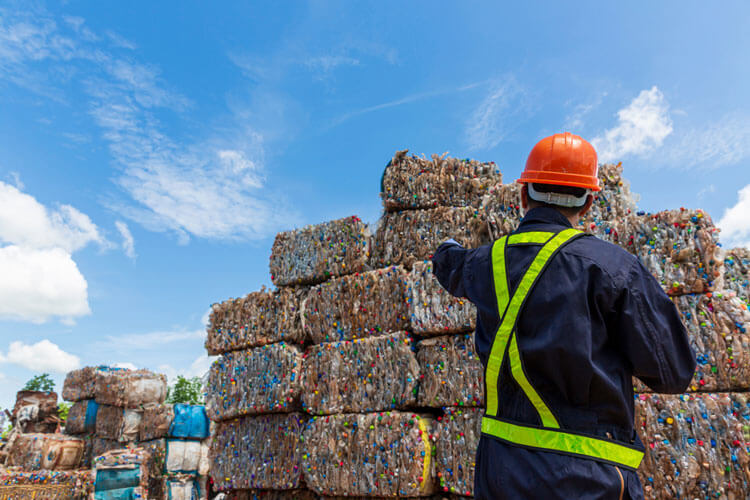Recycling Booms in Zimbabwe as Waste Picking Becomes Lucrative
Zimbabwe is experiencing a recycling boom as waste picking has become a lucrative business for many. With high unemployment rates, Zimbabweans are turning to waste picking and transforming as a reliable source of income. This has led to increased recycling rates and the growth of the transforming industry in Zimbabwe.
Background on Waste Picking in Zimbabwe
Waste picking has long been a common sight in Zimbabwe’s urban areas. Waste pickers, known locally as “makurumidze”, sort through household waste looking for materials that can be recycled and sold such as plastic, paper, glass and metals.
However, waste picking was largely an informal occupation with little organization or support. Waste pickers operated illegally, were exposed to hazardous materials and earned meager incomes. The waste picking sector employed over 500,000 people directly and indirectly in Zimbabwe.
Rise of Waste Pickers Associations
In recent years, the status of waste pickers in Zimbabwe has improved significantly with the formation of waste pickers associations that provide support and a collective voice.
Associations like the Zimbabwe Waste Pickers Association (ZWPA) and the Zimbabwe Informal Waste Recyclers Association (ZIWARA) represent thousands of waste pickers. These associations organize waste pickers, provide equipment and training, negotiate with local authorities for access to waste disposal sites and aim to formalize waste picking.
Improved Earnings from Recycling
The establishment of waste pickers associations has enabled members to access better prices for the materials they collect. The associations bulk and sell recyclables directly to transforming companies, eliminating middlemen who previously paid very low prices.
Whereas waste pickers previously earned around $1-2 per day, they can now earn $10-20 daily by selling to recyclers directly. With over 500,000 waste pickers in Zimbabwe, these additional earnings are making a significant economic impact.
Strong Domestic and International Demand for Recyclables
There has been growing demand globally for recycled materials like plastics, paper, metal and glass. Within Zimbabwe too, more transforming companies have emerged to meet demand for recycled materials from manufacturing industries.
Recycling companies use recycled materials to make everyday goods like packaging, tissue paper, cleaning products, construction materials and more. As recycling companies grow, so too does demand for recyclables, which further improves earning potential for waste pickers.
Government Support for the Recycling Sector
The Zimbabwean government has recognized the importance of recycling and the waste picker sector for employment creation, public health and the environment.
Some initiatives and policies adopted by the government to support transforming include:
- Scrapping customs duty and value-added tax on imported recycling equipment
- Providing waste pickers access to waste disposal sites and recyclable materials
- Assisting associations in registering as formal entities and providing training
- Exploring collaborations with recycling companies to sustainably manage waste
Growth of Recycling Companies and Facilities
The rising supply of recyclable materials from waste pickers associations and growing demand has led to the growth of recycling companies and facilities countrywide. Today there are over 15 large recycling plants across Zimbabwe.
Major recycling companies include Lunar Waste, Nedan Recycling, Faranani Recycling, Pioneer Corporation Africa and Morewear Enterprises. These companies recycle paper, plastics, cans, glass and electronics on a large scale.
Smaller recycling centers are also located in all major cities and towns in Zimbabwe. In addition to large transforming plants, Zimbabwe now has over 300 smaller transforming enterprises and buy-back centers.
Adoption of New Recycling Technology and Innovation
Transforming companies in Zimbabwe are increasingly adopting new technologies and innovation to improve operations.
Some examples include optical sorters to automate sorting of materials, advanced plastic washing lines, balers to compact materials for transportation, digital weighing scales and mechanized conveyor belts.
Recycling companies are also innovating with recycled materials, upcycling waste into new products like building bricks, pavement blocks, roof tiles, furniture and crafts. Investment is also going into research and development to find new uses for recycled materials.
Job Creation in the Recycling Value Chain
The rapid growth of recycling in Zimbabwe has created employment opportunities across the transforming value chain.
These include jobs in waste picking, aggregating and transporting recyclables, sorting at transforming plants, operating transforming machinery, research and development, recycled product manufacturing and more.
It is estimated that over 100,000 people are now directly employed in the transforming sector in Zimbabwe, with thousands more in supporting services like equipment manufacture and maintenance, logistics and transportation, administration and marketing among others.
Social Impacts of Increased Recycling
The socio-economic status of waste pickers has greatly improved with the formalization and growth of the sector. Incomes have increased multi-fold for thousands of waste pickers, enabling many to meet basic needs and invest in the education of their children.
Women, who constitute 75% of waste pickers in Zimbabwe, have particularly benefitted from joining associations and accessing stable incomes. transforming is providing employment opportunities for underprivileged youth also.
Work conditions have also improved through use of protective gear provided by associations, minimizing risk from hazardous materials. Overall, transforming is helping uplift urban poor households engaged in waste picking.
Environmental Benefits of Recycling Growth
Zimbabwe’s recycling boom has significantly contributed to environmental protection in the country. With more waste being recycled, less ends up in landfills or is indiscriminately dumped.
Recycling reduces need for extraction of virgin materials for manufacturing, resulting in energy savings and lowered carbon emissions. Hazardous e-waste is also being sustainably managed through transforming instead of crude dismantling or burning.
Clogged drains from plastic waste have reduced through transforming initiatives, helping minimize flooding during rains. The beautification of urban centers has also been a noticeable environmental impact.
Challenges Facing the Recycling Industry
Despite the major strides made, Zimbabwe’s recycling industry still faces some challenges that need to be overcome. These include:
- Limited availability of waste separation and collection infrastructure
- Low quality of recyclable materials due to contamination
- Patchy adoption of extended producer responsibility legislation
- High energy and transport costs for recyclers
- Limited financing and investments into the sector
- Insufficient Transforming capacities during peak supply periods
- Weak monitoring of standards and operations
Future Outlook for Recycling in Zimbabwe
The future outlook for recycling in Zimbabwe looks promising given the high global demand for recycled materials and government support locally. With increased formalization and organization, the industry is expected to continue growing.
Key opportunities going forward include:
- Leveraging extended producer responsibility policies to improve quality and collection of recyclables
- Expanding Transforming infrastructure countrywide
- Supporting innovation and product development using recycled materials
- Tapping into export markets for certain recyclables
- Adopting technologies like waste-to-energy
- Improved training and working conditions for waste pickers
If Zimbabwe addresses challenges sustainably, Transforming could become a leading industry in the country and a major source of employment.
Conclusion
In conclusion, Zimbabwe is undergoing a recycling boom with waste picking becoming a lucrative business and reliable income for thousands. Formalization of waste pickers, rising demand for recyclables locally and globally, growth of Transforming companies and supportive government policies have all catalyzed this boom.
While some challenges remain, the future looks bright for Transforming to continue flourishing into an economic and environmental win for Zimbabwe. The country is gradually transitioning to a circular economy, thanks to a thriving Transforming industry.
FAQ’s
What has led to the recycling boom in Zimbabwe?
The formalization of waste pickers into associations, rising domestic and global demand for recyclables, the growth of Transforming companies, supportive government policies and improved earnings potential for waste pickers in the sector are driving the recycling boom in Zimbabwe.
Waste pickers in Zimbabwe have transitioned from unorganized individual pickers to joining waste picker associations. These associations organize them, provide equipment and training, negotiate deals for recyclables and aim to formalize waste picking.
How much more are waste pickers earning today from recycling?
Whereas waste pickers previously earned around $1-2 per day, they can now earn $10-20 daily by selling directly to recyclers through their associations, a multi-fold increase.
What new recycling infrastructure has emerged in Zimbabwe?
Zimbabwe now has over 15 large recycling plants and over 300 smaller recycling enterprises and buy-back centers across the country. New machinery and technology for sorting, processing and recycling has also been adopted.
How many jobs has the recycling boom created?
It is estimated over 100,000 people are now directly employed in the recycling sector in Zimbabwe, with thousands more employed in supporting services.
What are the main environmental benefits of increased recycling?
Main benefits are reduced waste going to landfills, lowered plastic pollution, reduced extraction of virgin materials, energy savings and lowered carbon emissions.
Find out what’s hot in Business. Click here





